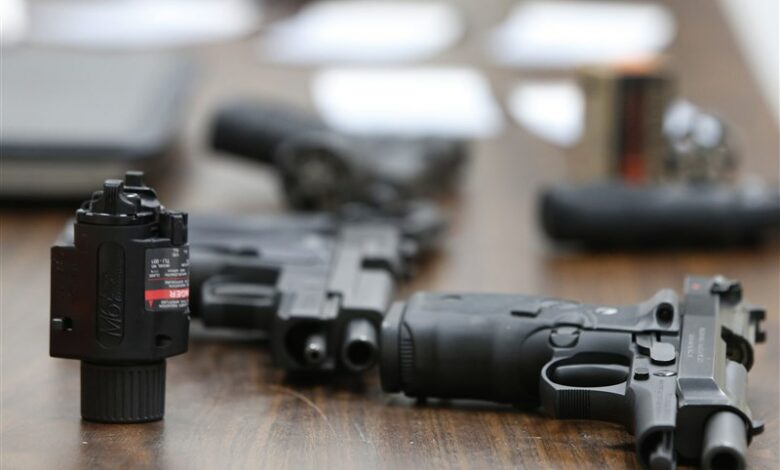The European Parliament tightened gun rules for civilians

| Considering the circulation of millions of illegal weapons in the European Union, the European Union Parliament has tightened the rules for the import and export of firearms. |
According to the report of the international group Tasnim news agency, “R ND” wrote in an article: While there are about 35 million illegal guns circulating in the European Union, the European Union Parliament approves stricter laws for guns.
No one knows exactly how many firearms are in circulation in the EU. In many countries, exports are registered only on paper. It’s in the hands of criminals – the European Union Parliament has now passed tougher gun laws. Gram approved in the European Union. These weapons are for civilian use, meaning they are not used by the armed forces, police or other security authorities. The reason for this action is that, according to the estimates of the European Union Commission, more than half of the civilian rifles in Europe are not registered. Accordingly, about 35 million illegal rifles and pistols are circulating in this union.
Brand Long, head of the International Trade Committee from the Social Democratic Party, told the editorial network about this. Germany (RND) said: These numbers are a slap in the face of this union and show that the clock is five minutes past twelve. “At worst, all unregistered firearms can be used in mass shootings, for example, the more illegal guns there are, the easier it is to get hold of a weapon to commit a crime,” Long warned. p style=”text-align:justify”>In many cases it is completely unclear who the purchaser of the exported firearm is. Because it is often not possible to trace the weapons that are sold to the American market, for example. The European Union exports three times more rifles and pistols for civilian use than it imports. Many models go specifically to the USA. European weapons are popular there, especially those from German manufacturers such as Heckler & Koch, Carl Walther and SIG Sauer, or Glock pistols from Austria and Beretta from Italy. There is currently no record of arms being imported across the EU. The number of illegal pistols in this area can be much higher. In the future, imports across the European Union are to be controlled according to the same standards. Europe says the EU Parliament wants to record the trajectory of firearms, parts and ammunition in an electronic database in the future. All manufacturer and dealer applications for importing and exporting weapons should also be available there. For example, the fact that in some member states data is only recorded on paper shows how old the current rules are to allow the exchange of information between all European security and customs.
The European Parliament also argues that fewer illegal guns mean less criminal activity and fewer firearms available to criminals and terrorist groups. Stricter regulations should also be applied to shooting and marking pistols to prevent them from being turned into lethal firearms.
EU countries initially only wanted Share information about the import and export of firearms with each other. However, the parliament was able to win the negotiations and ensure that governments must in future provide detailed reports in an annual public report. “Everyone should have the right to know what’s going on in Europe about firearms for civilian use,” Long said. The EU currently has a similar approach with regulations on goods that can be used for both military and civilian purposes (dual use).
In the future, reports A country should also include details about import or export refusals and their reasons, as well as the number of controls after the goods are exported to third countries. In this way, the European Union Parliament wants to check whether the member states fulfill their responsibility and duty of care. EU countries still have to vote on final approval of changes to the revised EU firearms regulation in the Council.
end of message /
| © | Webangah News Hub has translated this news from the source of Tasnim News Agency |


